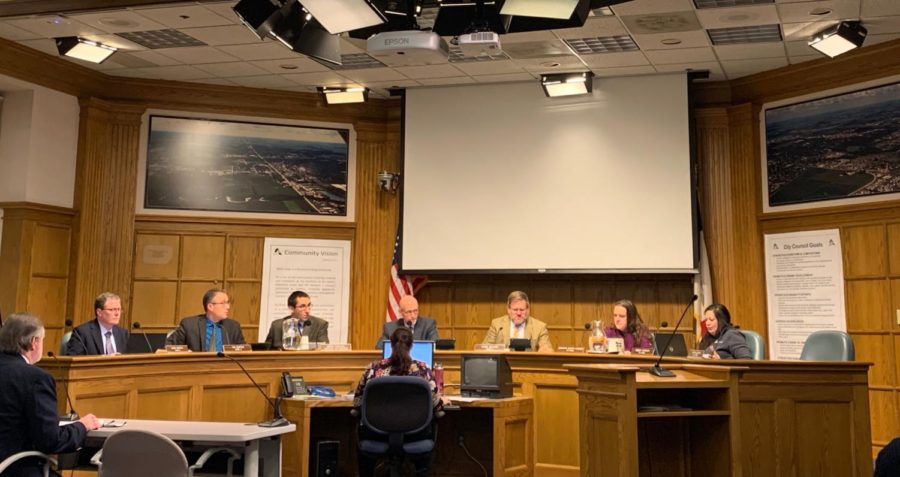Ioway: The history behind the name
Ames City Council discussed ordinances regarding massage establishments and options to change the name of Squaw Creek at their meeting Nov. 26.
January 30, 2020
As the Ames City Council recommended to replace the name of Squaw Creek to Ioway Creek, there is in-depth meaning to the suggested name.
A debate was sparked when a request was made by an Ames resident that said individuals of Native American descent have protested the name since the 1990s. The resident requested the name to be changed, offering the name “Story Creek” as an option since Story County has the highest population in which the stream flows.
The term “Squaw” is defined as an offensive connotation towards Native American women, according to the Merriam Webster dictionary.
“I think the easiest way to find a name that was recognizable and would mean something to people and would make an immediate connection to the native presence here was just a tribal name,” said Sebastian Braun, associate professor in world languages and culture and the director of American Indian Studies who also looked over recommended names.
The name Ioway was recommended by the Ames City Council during its meeting Tuesday night.
“The earliest people who lived here that we know the name of are what are called the Ioway and they didn’t call themselves the Ioway, they called themselves the Baxoje,” Braun said.
Ioway or Iowa are the Native Americans that lived in the geographic area, according to the official website of the Ioway, and they called themselves Baxoje — meaning grey snow.
“They were very powerful in the beginning, they were noted as a lot of the more powerful tribes in this area, they had most of Iowa — they did well for themselves,” Braun said.
The tribe relocated many times throughout history, ranging from the geographic area within Minnesota to maintaining a village near Council Bluffs, Iowa. The Ioway settled near the Des Moines River on the Grand River Basin.
“In the late 1700s, early 1800s, the Ioway just ran into a lot of difficulties, there were epidemics, there was a lot of warfare with the Dakota, especially, and they just lost ground,” Braun said.
After the Ioway lost ground, the Sauk and the Meskwaki lived in the area.
When the two recommended names were released, there was an argument within the Ames and Iowa State community. Some residents have argued through social media that the name has become a staple within the Ames Community.
“There seems to be some criticism of the county and the city basically getting into this and I want to go on record and saying that the U.S. Board on Geographic Names have contacted us and asked us for input and so we are doing that,” Ames Mayor John Haila said in a city council meeting in November.
Braun said the name change could rebuild connections with Native Americans.
“I think the renaming of this creek […] could actually be an opportunity to rebuild or build connections,” Braun said. “For example, when the creek is renamed, why not invite the people for whom it will be named and, maybe, the other people for whom it will not be renamed here to remember, for example, the history of the land, the treaties, you know, to understand the treaties did not just involve Native [Americans] but they involved anybody who lives here.”







